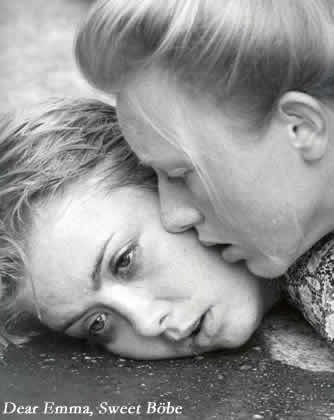 For this year’s 20th anniversary of the Velvet Revolution of 1989, the Karlovy Vary festival has prepared a special program section entitled 20 Years of Freedom. “Time has moved faster during those 20 years, new things have happened, and for many of us who lived through that period, those times seem very far away,” says festival president JiÅ™í Bartoška, who in part thought up the new section because the current young generation thinks of the Revolution as ancient history seen in films for old-timers. “We believe it is commendable and, above all, necessary to remember that one of the basic changes that 1989 brought us was the freedom to express our opinions and to create according to our talents and abilities,” clarifies BartoÅ¡ka concerning the section’s aims.
For this year’s 20th anniversary of the Velvet Revolution of 1989, the Karlovy Vary festival has prepared a special program section entitled 20 Years of Freedom. “Time has moved faster during those 20 years, new things have happened, and for many of us who lived through that period, those times seem very far away,” says festival president JiÅ™í Bartoška, who in part thought up the new section because the current young generation thinks of the Revolution as ancient history seen in films for old-timers. “We believe it is commendable and, above all, necessary to remember that one of the basic changes that 1989 brought us was the freedom to express our opinions and to create according to our talents and abilities,” clarifies BartoÅ¡ka concerning the section’s aims.
20 Years of Freedom will focus on key events via several movies created during the past several years in the former Eastern Bloc. “We have tried to find films which capture, with all their positive and negative aspects, the past and present of the citizens of these countries,” adds festival artistic director Eva Zaoralová. With regard to the Czech Republic, one of Helena’s time-gathered documentaries from the “Marriage Stories” series presented itself, and is the only Czech work represented in the section. The particular segment is “Zuzana and Stanislav,” which charts the various paths chosen after the Velvet Revolution by those who lived under totalitarianism. “Whereas the man in the film was actively able to take advantage of the possibilities that were offered him, the woman satisfied herself with a passive approach to life,” explains Zaoralová.
The director of the film, Helena, speaks of the difficulties shooting under the former regime. “During totalitarianism, some statements made in front of a camera had a completely different value than they do today. Then, a curious conspiracy existed between filmmaker and audience, and sometimes one could sneak an “explosive” message into a movie, and viewers really appreciated it. It was a great victory,” she recalls, but then immediately adds: “At the time, filmmaking was perhaps more “exciting” but I much prefer today’s freedom.” 
The section also includes films by renowned world directors. Fifty-four-year-old Polish director Juliusz Machulski, appreciated in the Czech Republic for his comedies Hit the Bank, Sexmission, and King Size, has his latest film in the section, How Much Does the Trojan Horse Weigh? While his 1984 movie Sexmission looked into the future, Trojan Horse looks back to the 1980s. This fanciful film portrays a woman who, able to go back in time to repair old mistakes, finds herself in 1980s communist Poland. “In Juliusz Machulski’s latest film, past and present are seen through a comic lens,” says Zaoralová, who as a contrast mentions another, heavier film in the section, Russia’s Babusya (screened in the competition at the 2003 KV IFF), whose heroine has to deal with tragic problems of existence.
Living legend of Hungarian film, István Szabó, is represented in the section by Dear Emma, Sweet Böbe. This 1992 film tells the tragic story of two former Russian teachers who try to regain their original social status after the political changes occur. The film was a festival success, winning the Prize of the Ecumenical Jury and a Silver Bear at Berlin, and Best Screenwriter at the European Film Awards.
A mere three years after its release, the German film The Lives of Others by Florian Henckel von Donnersmarck has become a modern classic. It won the 2007 Oscar for Best Foreign Language Film, and also took BAFTA and European Film Academy awards. It recounts the grim life of a Stasi secret police officer who becomes personally involved while spying on a playwright named Georg Dreyman.

